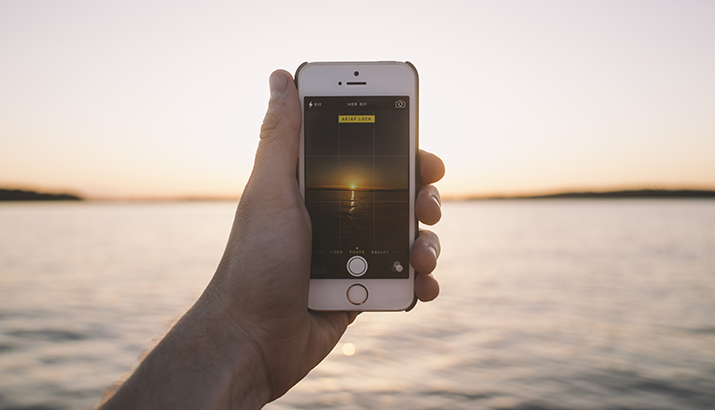How to make employers love your gap year as much as you did
You went on a gap year and now you’re looking to start your graduate job search. You have a six-to-twelve-month break in your work experience and need to account for the time spent away from education and employment. But how do you sell to employers (or to a graduate recruitment agency) the fact you spent a significant amount of time passing out on various beaches on account of drinking too much the night before? Can you really include photographer in your list of skills because you acquired 50 likes on your selfie with that tiger in Thailand? How do you mention travel experiences in your CV without sounding like one of the Kardashian sisters? [“OMG, I’m like so cultural.”]
First things first - employers DO value skills learnt travelling
Most employers will appreciate that you have travelled; it shows that you have a desire to learn, you’re motivated, ambitious and independent. It can really work in your favour if you express it in the right way on your resume. Talk about the skills you acquired when it came to planning and organising your year abroad. Maybe you created a detailed itinerary, a budget proposal or a monitored financial spreadsheet. Perhaps you wrote your own travel blog. You could have just winged it and hoped for the best. But if you think about it, you probably came back from your holiday with at least a few transferrable skills:
Haggled your way down in price in the black markets of Shanghai. Negotiation skills ✓
Compared hotel offerings before choosing your preferred place to stay. Market research ✓
Missed your connecting flight, and had to sleep on the airport floor? Adaptability ✓
Fell off your motorbike and had to quickly find first aid? Problem-solving skills ✓
Got too drunk and missed the last boat home at the island rave? Works independently ✓
The list is endless, but your tone and angle is key. Use professional language and be clear and concise. You probably encountered a multitude of new experiences that helped shape you into your current self; the challenges you overcame make you more qualified now than you have ever been in your life. Transfer these learnings onto your CV and it makes for a top tier candidate.
break-v1
Making your experience CV-safe
Take a look at your CV. Typically, beneath your name and contact information lies your professional summary. This is a good place to briefly mention that you spent a year of solo travel gaining useful life experience – keep this blurb brief.
Most of the time your CV will continue right into relevant work experience. If you spent your gap year doing nothing but hostel hopping that’s okay (no judgments here) but it doesn’t amount to work experience. Instead, leave it for “other experience” (we’ll get there in a second). Conversely, if you volunteered during your gap year or did a job like teaching English to children for a small living wage, also include it in your work experience. It shows that you are hard working, even on a personal holiday.
And even if the extent of your 'work' abroad amounted to writing a travel memoir, or keeping a blog full of beautiful, edited and well thought out photography, incorporate it in your work experience (and include the any relevant website links). That sort of entry might read something like this:
September 2016-July 2017: Gap year travelling through South East Asia & South America
· Designed, maintained and promoted the website johnsgapyear.com, attracting 100+ unique users a month.
· Used analytical tools to monitor activity, and regularly engaged with subscribers developing basic CRM skills.
· Familiar with various Content Management Systems, including Wordpress, Blogspot, and Tumblr.
· Practiced expert photo-editing skills using various computer programs including Photoshop, Adobe, and InDesign. (your VSCOcam app does not apply here)
If none of the above applies to you and you just spent your time sun bathing, beach bumming and making frequent pit stops to full moon parties (jealous), then leave it out of work experience.
Instead, highlight your learnings in a different section – other interests. Talk about the planning and organisaton skills you learned, the obstacles you encountered and the life experience achieved. Write it like this:
September 2016-July 2017: One-year solo travel through Europe, Asia and the Americas
· Solely responsible for the ongoing research, organisation, and execution of travel plans.
· Learned to effectively budget, creating a spreadsheet with regular interval re-evaluation.
· Developed negotiation skills through daily contact with vendors.
· Learned to adapt in various cases of unexpected misadventures.
· Utilised effective problem-solving skills.
· Studied new languages, and adopted communication skills, verbal and non-verbal to overcome language barriers.
You see the truth is, despite not conforming to the typical work after uni life, your year was not wasted. And, upon reading this you should have the tools to effectively communicate your travel to future employers. Just remember that in your interview your future employer will want you to discuss these skills further. Like anything, if you’re putting it on your CV be sure to have proof to back it up.
break-v1
Bottom line, you can use your travel experiences to make you stand out, if expressed properly it can increase your chances of being chosen for an interview.
Good luck in your graduate job search, your gap year may have even given you an edge over your competitors.
BrighterBox connects the fastest-growing companies with the brightest graduates.
Graduate Jobs




Add new comment